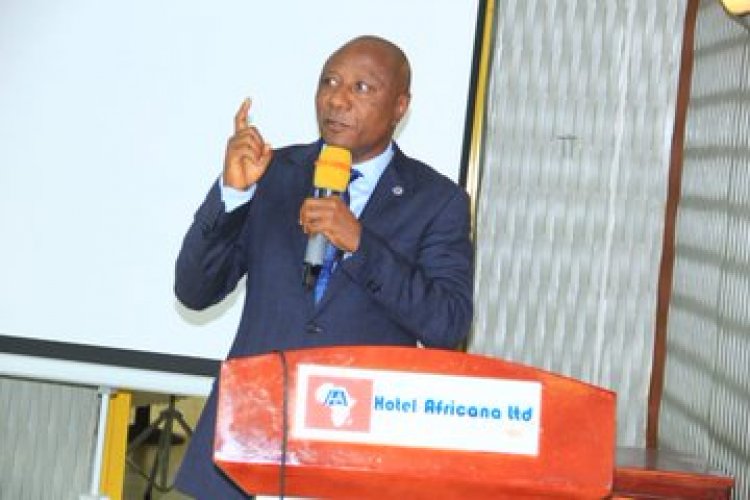The new simplified Access to information Guidelines to empower citizens in making critically informed electoral decisions.

In an effort to for citizens to make informed decisions during elections in Africa and hold the elected accountable, electoral stakeholders have expressed the need for citizens to have access to timely and accurate electoral information.
Despite the existing guarantees in different instruments in African countries, lack of access to information remains a big concern in electoral processes leading to lack of trust and confidence in the outcomes of elections.
The new simplified version of the guidelines on access to information in Africa that was disseminated to stakeholders on Wednesday 27th April 2022 at Hotel Africana in Kampala, will provide a renewed direction to the to relevant electoral stakeholders who have the duty to promote proactive discloser information to safeguard the integrity and legitimacy of electoral processes.
The State Minister for National Guidance, Ministry of ICT & National Guidance, Hon Kabyanga Godfrey Baluku highlighted the need to disseminate the simplified Guildlines to the citizens in order to equip them to participate in electoral processes.
“Guidelines should be taken to the people to equip them. People don’t how to access information” he said
The minister while launching the guildlines on Wednesday said that the right to information facilities and promote accountability, and transparency in electoral processes.
“People need to understand the value of elections are meant to organise society and elect with facts not emotions” he added

Gilbert Sendugwa, The Executive Director AFIC, pixtured above said that in order to prevent wrong perception among the electorate that might cause conflicts during or after elections, there is need to the citizens to access adequate electoral information in a timely manner.
“Lack of adequate information by the citizens in Africa have resulted into wide scale conflicts and reduction in elections participation. Everyone roles need to be understood on obligation to disclose information” he said.
Gilbert urged stakeholders to set up measures to promote access to information inclusiveness, discloser, receiving and responding to information requests.

The guidelines according to Susan Juliet Agwang from Africa Freedom of Information (AFIC) in picture above were adopted in 2017 however she say that thought some countries in Africa have ratified the Africa union charter on Democracy and elections , Uganda has not. She called upon all stakeholders to promote the guidelines' implementation in Uganda.
“Though Uganda is implementing the African Union charter on democracy and elections, there is need to ratify them. We have equal responsibility to promote the guidelines on access to information” she said.
According to the Guildlines “The right to access to information empowers the electorate to be well information about political processes with regard to their best interests including right to elect freely their political representatives and hold them accountable while executing their duties. It’s a foundation requirement of democracy and food governance” the guidelines partly reads.
The guidelines indicate that most African Union members have constitutional guarantees on public Access to information, however only 26/54 have specific laws on access to information.
The findings in the study the state of implementation of Access to information on carried out in Uganda, Zambia and Gambia reveal that some of the requirements had been complied with, however crucial issues like collaboration, training, promotion among others need to be addressed to improve proactive discloser of election information.












